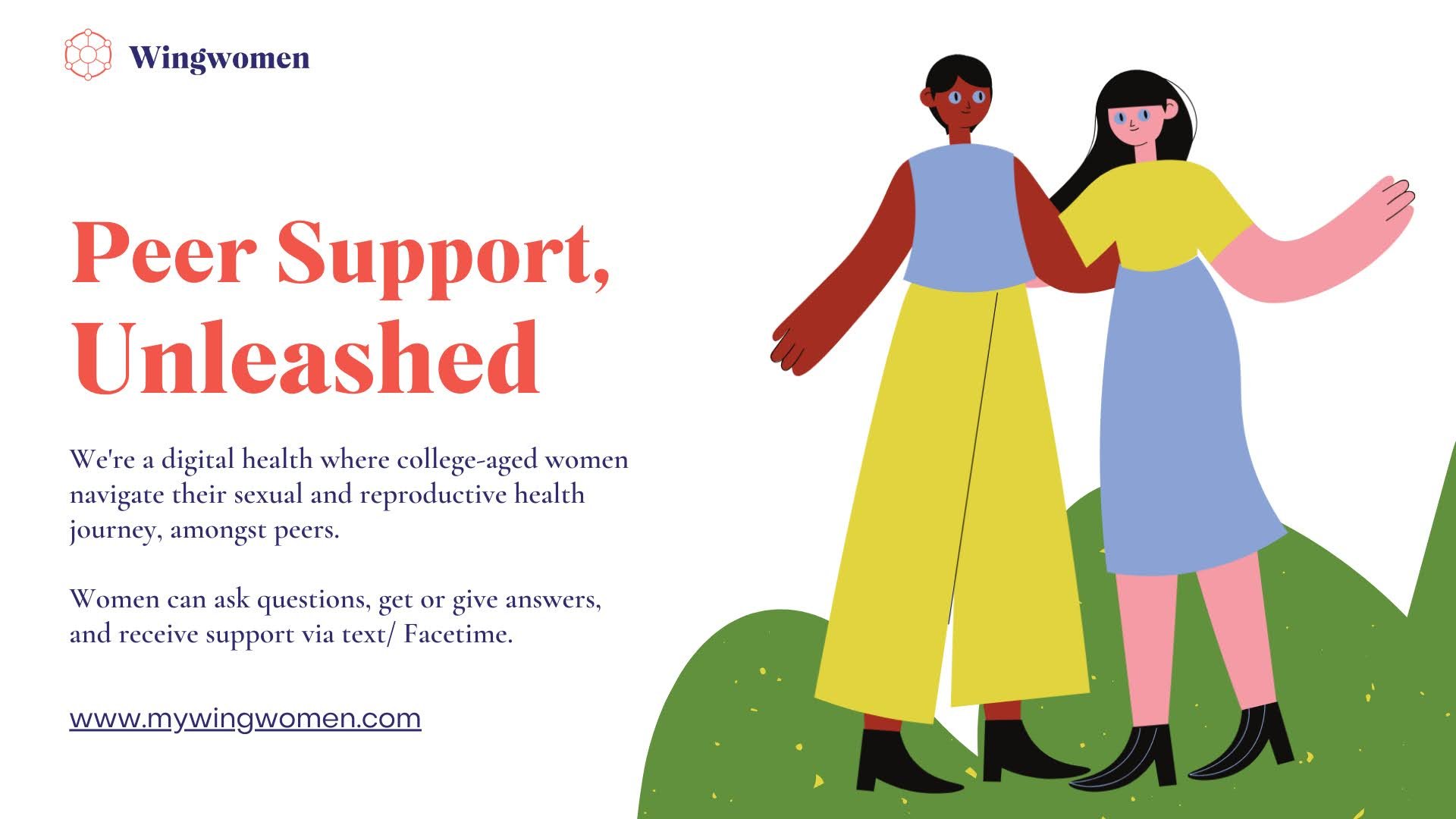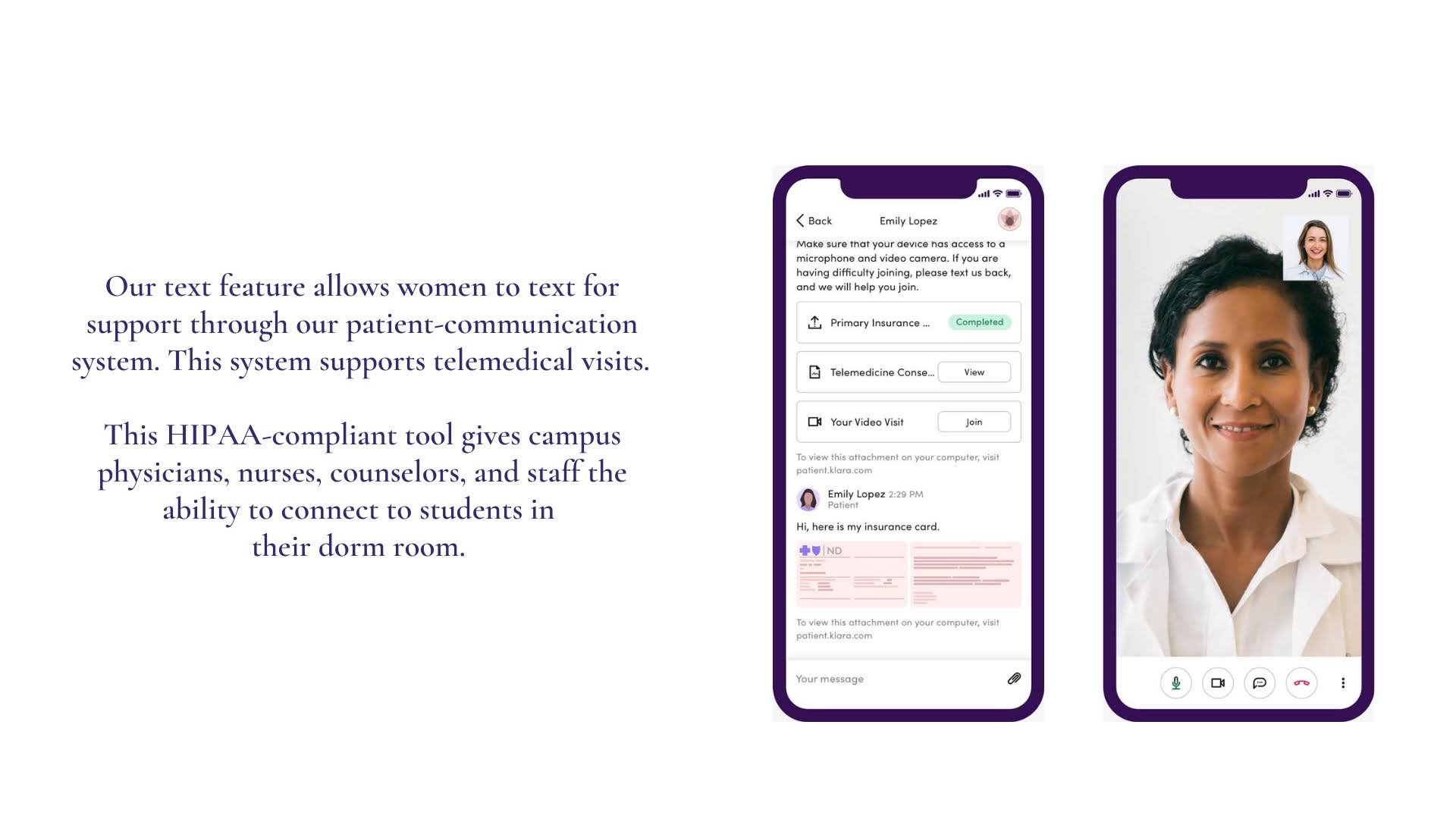WoW Woman in FemTech I Adonica Shaw, founder and CEO of Wingwomen
As the founder and CEO of Wingwomen, Adonica is a powerful voice for women who are navigating stress and burnout while navigating ups and downs in their health. She created the women's health social network after surviving a "Code Blue" Eclamptic Crisis just 3 days postpartum and went on to create the inaugural and internationally recognized Parental Mental Health Awareness Week, to heighten awareness of the importance of mental health for parents who are also navigating their health journey, be it reproductive health, fertility, pregnancy-related.
As a health advocate, she serves as a Mental Health Subject Matter Expert for the Conscious Inclusion Company. And she is known for her work as both a Patient Advocate for the Preeclampsia Foundation and Momma’s Voices.
Wingwomen is a digital health platform for women. Their online community provides valuable access to peer support and reproductive health coaching for women navigating their reproductive health journey, fertility, and pregnancy.
Adonica, tell us a bit about your background and your projects so far.
I started my career as a weather anchor and then pivoted into marketing and communications. I have previously done PR consulting for nonprofits, small businesses, and private corporations as well. I’m a 4 -time TEDx speaker, author, established podcaster, and health and wellness advocate. I’m also a patient advocate for the Preeclampsia Foundation.
How did you get into this industry? Has it been an easy industry to get into or have you had many challenges?
I had a nontraditional pathway into this industry. I’m nontechnical and I did not study healthcare as an undergrad. I did have some experience as a public board member working with at-risk patient populations in the greater San Francisco Bay area, but none of that played a direct role in the development of Wingwomen. With the birth of my son, I experienced a condition called Preeclampsia and I was forced to deliver my child at 34 weeks. A few days after my delivery I experienced a Code Blue eclamptic crisis which impacted my health during the fourth trimester. I went through a time of crisis, which was followed by a time of healing - but only after I found other women who experienced and spoke openly to me about their reproductive health experiences. That lead me to create this platform to help women connect to women who've experienced a reproductive condition more easily and reduce their time in a crisis. In the US roughly 20m women are impacted annually by reproductive health issues and more than 390m globally. I’m changing this space because the unmet need is overwhelming and as a woman with a lived experience, I’m motivated to ensure other women don’t have to do this alone.
How long did it take you to be where you are now? What was the biggest obstacle?
It has taken about 2 and a half years. I started working on the product in March 2020 at the beginning of the pandemic. After several months of research, we launch a proprietary quiz in November of that year that allowed women who were trying to better manage their health to gain insight into the area of self-care that would be most suitable for their personality. By the spring of 2021, we honed our product offering and entered into an accelerator program led by Switch, formerly Women 2.0. Where we did some initial BETA testing. At the conclusion of that program, we entered into the Wharton Growth Acceleration Program during the summer of 2021 to make connections with other entrepreneurs and hone our GTM. The program ran through September 2021, and in the same week it ended, I, the founder started the MIT-Harvard Medical School Healthcare Innovation program by MIT Bootcamps. That program, although not an accelerator, was pivotal to our growth because it gave me the ability to work with doctors, researchers, entrepreneurs, and other healthcare providers from around the world to identify their pain points as they related to women's health.
We were later selected for the Milestone Makers program by NASDAQ where we developed a solid revenue structure and put the finishing touches on the legal structure of the business. I would say the biggest obstacle was getting to a patient-centric solution that doctors could get behind. Unlike other sectors, healthcare technology and healthcare businesses have a unique barrier to entry because the end-user, or patient isn’t always the one footing the bill. It took a while for us to develop something that was a win-win for everyone that this platform would touch.


What are the challenges of being in the industry you are in?
I would say the largest challenge(s) we’re facing is the current political atmosphere and beliefs around women’s reproductive health and reproductive health rights. With the overturning of Roe V. Wade, we are at a unique fork in the road in terms of how to address the feeling women have around the decision and how it personally impacts them.
What are your biggest achievements to date?
Personally, I was named as one of the top 136 Black Innovators in STEM + Arts by Wonder Women Tech.
Wingwomen placed in the semi-finalist round of the business pitch competition in the Wharton, Entrepreneurship Growth Accelerator Program in the summer of 2021. In the fall of 2021 Wingwomen was one of 10 companies selected globally to participate in the Nasdaq Milestone Makers program. I was accepted in and admitted to the MIT-Harvard Medical School Healthcare Innovation program. I’m the recipient of the Equity Impact Scholarship by Dignity Global Health Education and Commonspirit for the Healthcare Leadership Certificate through Duke University, Corporate Education.
What are the projects you are currently working on?
I’m currently the Founder & CEO of Wingwomen, a digital health company that allows women with reproductive health conditions to find peer support and obtain reproductive health coaching. Aside from growing my business, I’m also in school to become a Midwife.
Is the #WomenInTech movement important to you and if yes, why?
It’s important to me because it gives women and their healthcare team the ability to reduce common pain points that have been detrimental in the past. Based on my own lived experience, the technology we’re building would have helped me reduce my time in crisis, which ultimately I believe is the goal for myself and other founders in the health tech/ femtech space.
What will be the key trends in your industry in the next five years and where do you see them heading?
I believe this is yet to be seen, but I do think we are going to see more tech and tech-enabled solutions that address pain management for Endometriosis. I also believe we may see more at-home testing kits for things like STIs, STDs, and reproductive health conditions because women will want a more personalized and private health management experience.
What is the most important piece of advice you could give to anyone who wants to start a career in this industry?
I would say start by speaking to the payers and doctors about their pain points, and then interview patients to understand how to create a product that would benefit both parties. Unless you have a product that can be scaled and funded by the consumer - without the support of healthcare professionals, it’s important to understand who is going to pay for the product and why.
Who are three inspirational women in your respective industry you admire?
I really admire Clelia Morales, the co-founder of Woom, Ashlee Wisdom, M.P.H the co-founder of Health in Her Hue, and Kate Ryder the founder of Maven Clinic.
Find out more about Wingwomen on their website.
Follow Wingwomen on Instagram, Facebook, and LinkedIn.
This interview was conducted by Marija Butkovic, Digital Marketing and PR strategist, founder, and CEO of Women of Wearables. She regularly writes and speaks on topics of wearable tech, fashion tech, IoT, entrepreneurship, and diversity. Follow Marija on Twitter @MarijaButkovic and read her stories for Forbes here.



